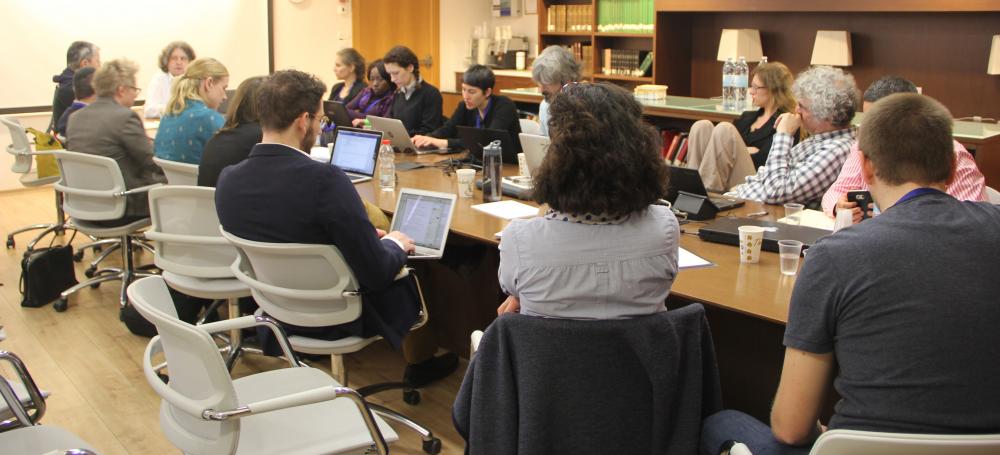
A Kantian account on Human Dignity - Prof. Marcus Düwell (Utrecht University)
The lecture delved into the philosophical writing that perhaps influenced the most on the construction of Human Dignity in western thought – Immanuel Kant's philosophical treatises and especially his "Groundwork of the Metaphysics of Morals". Through a systematic clarification of basic concepts in Kant's epistemology and moral philosophy, the lecture provided a deeper understanding of Kant's famous categorical imperative used in the legal sphere; and explained the idea of dignity in Kant's thinking and its functions and implications. One main argument, is that the Kantian concept of Human Dignity is referring to the rational capacities of human beings and their status as autonomous beings. This status is the basis of a normative understanding of human beings. As such, the Kantian Human Dignity is naturally connected to the idea of Human Rights that have to function to enable the life of the autonomous person.

Human Dignity as the Foundation of Human Rights - Prof. Marcus Düwell (Utrecht University)
The lecture aimed to clarify the complex relationship between two major concepts - Human Dignity and Human Rights. In that regard, the lecture presented various moral justifications for Human Rights and especially scrutinized Alan Gewirth's Principle of Generic consistency as an argument for such justification. On the basis of Gewirth's mentioned principle and its basic presumptions - such as the Human Being as a free agency and the hierarchy of rights – it was claimed that Human Dignity is to be understood as the normative starting point that grounds Hunan Rights. This is since the concept of Human Dignity requires the protection of man as an autonomous agent. Thus, it enables us to know what kind of rights in our dynamic reality would implement that goal and therefore should be exercised and protected.

